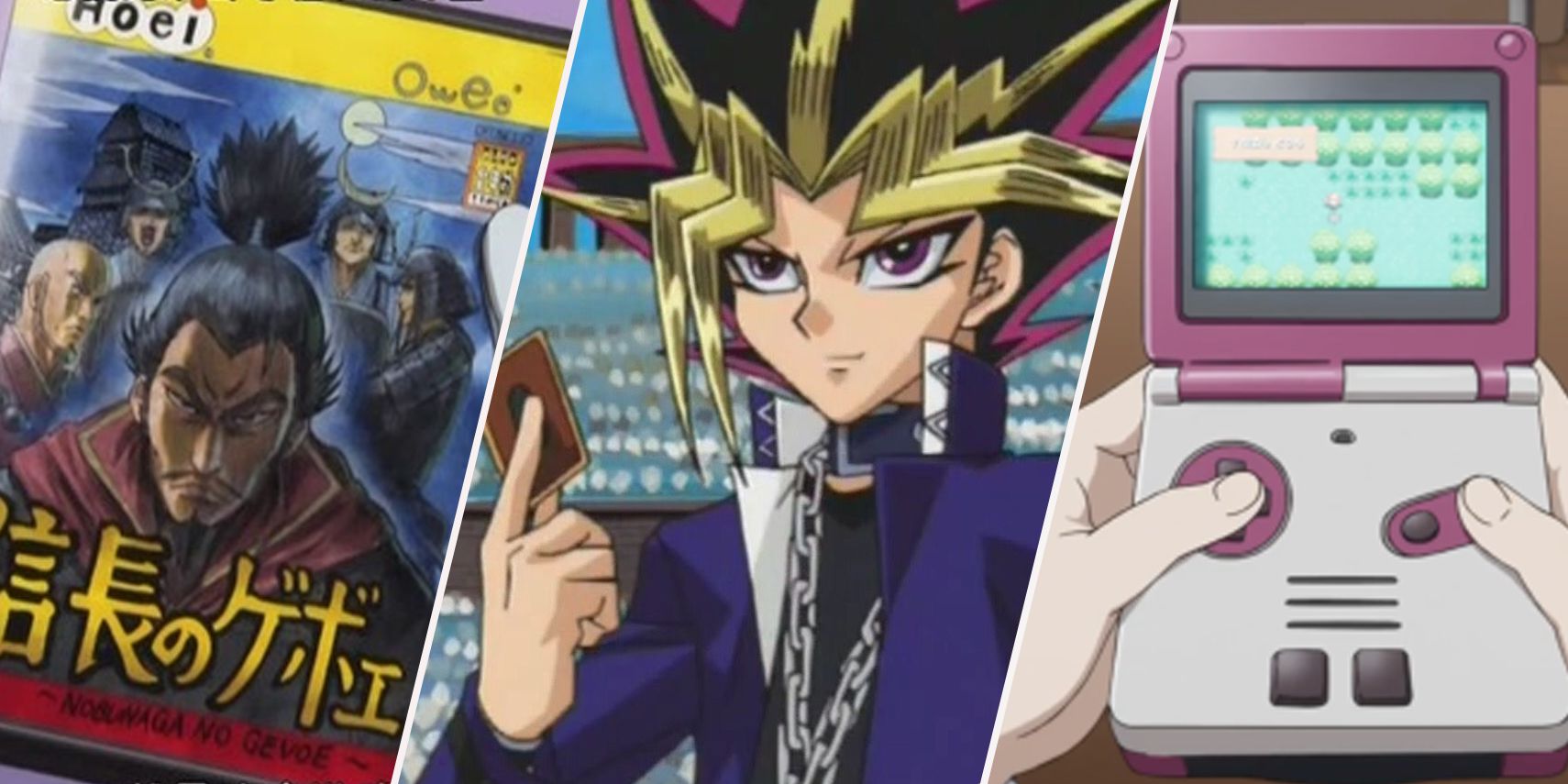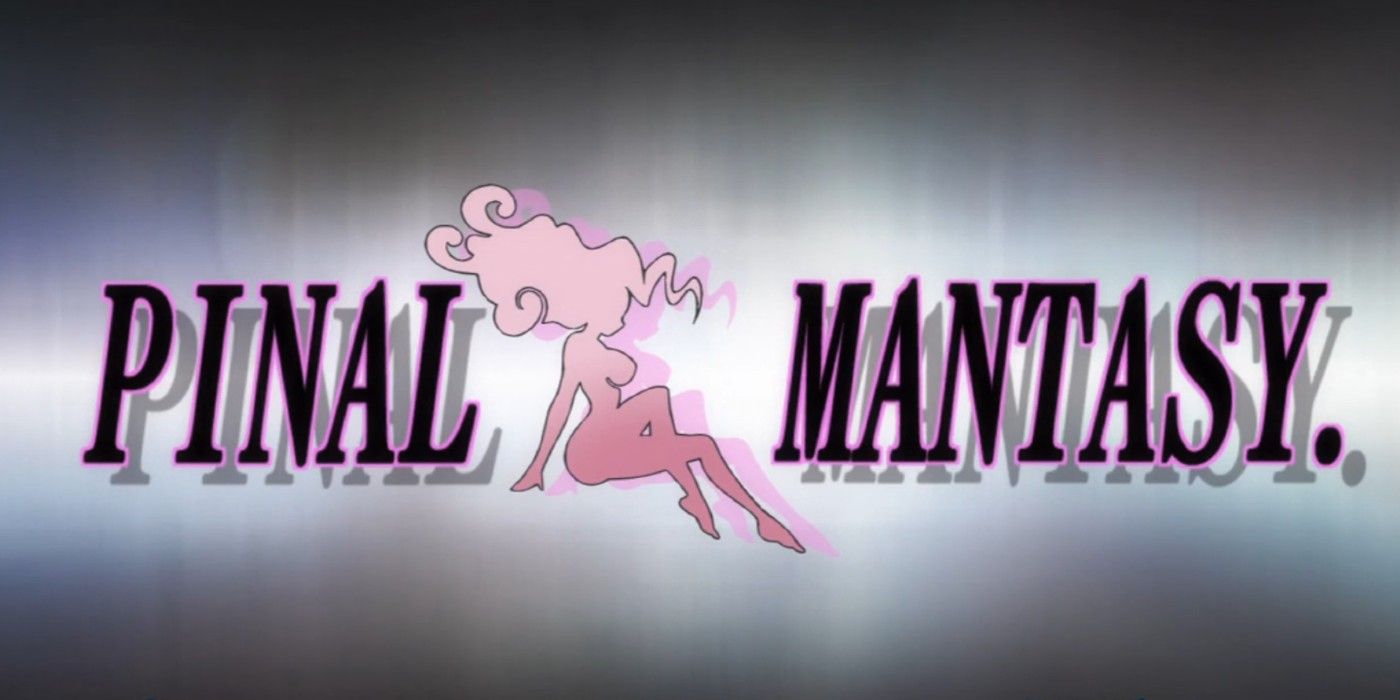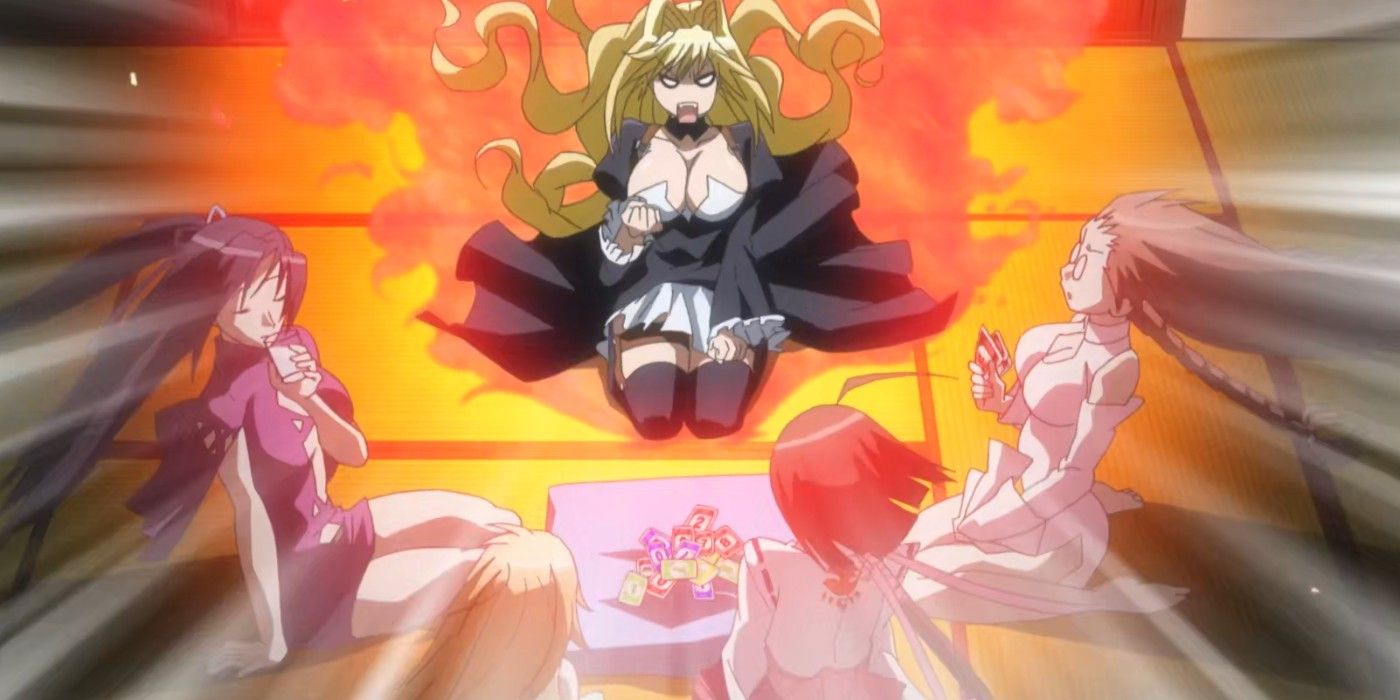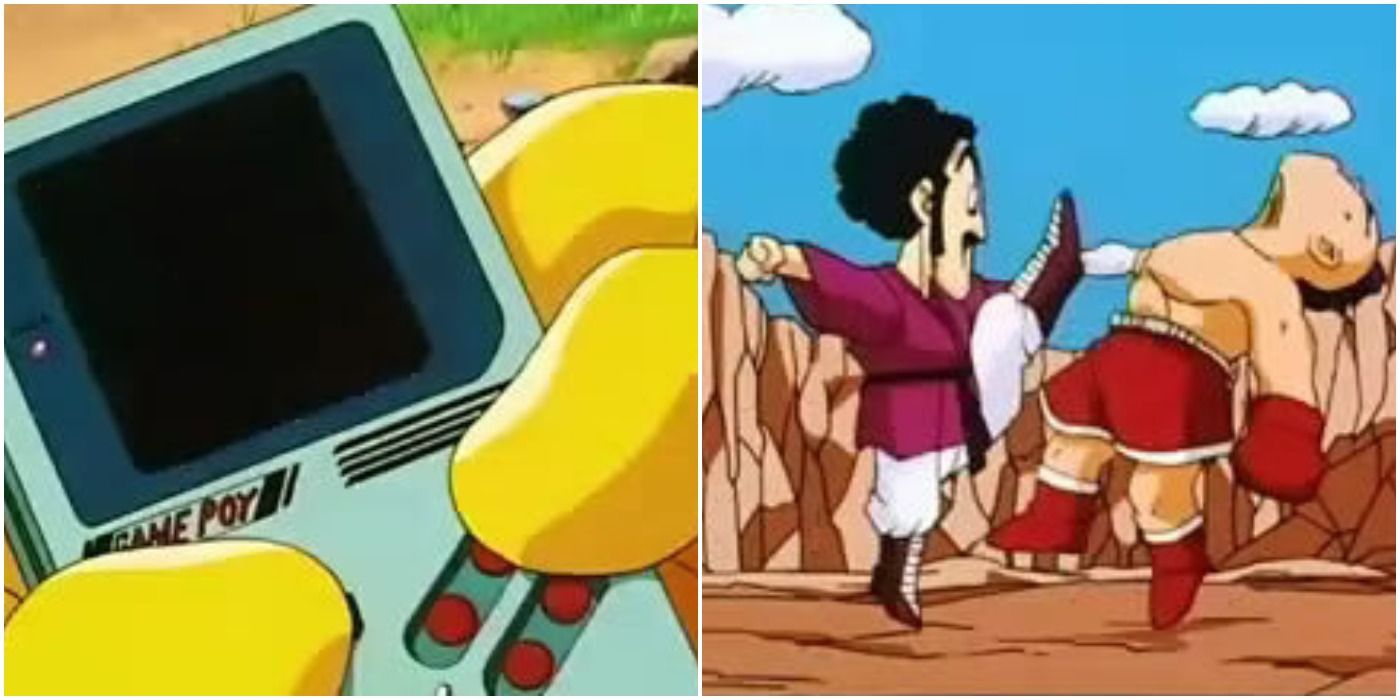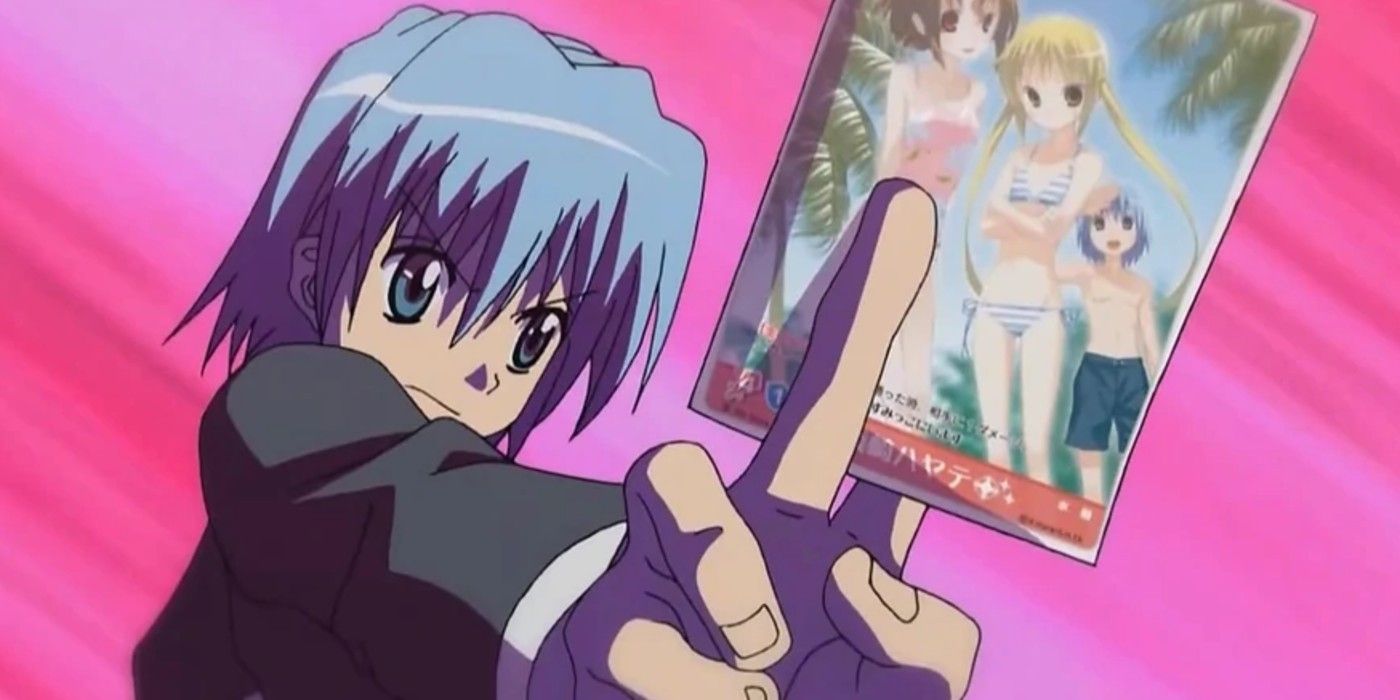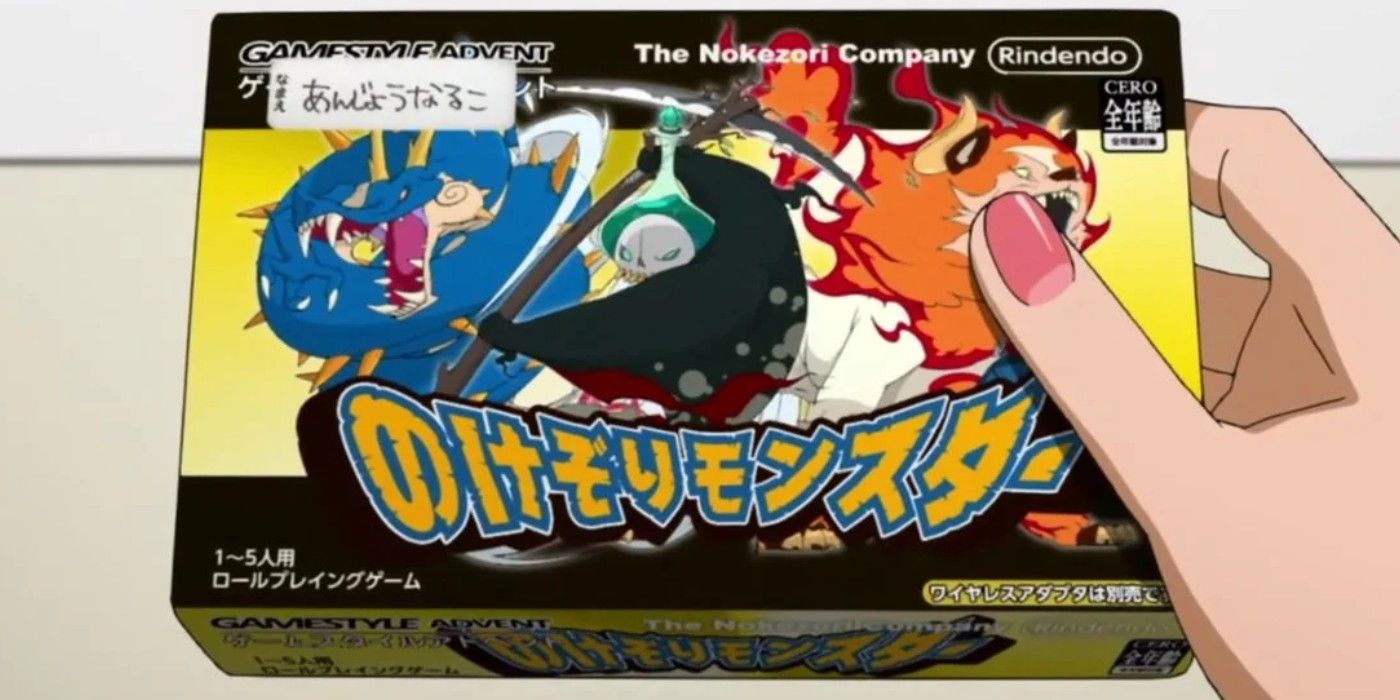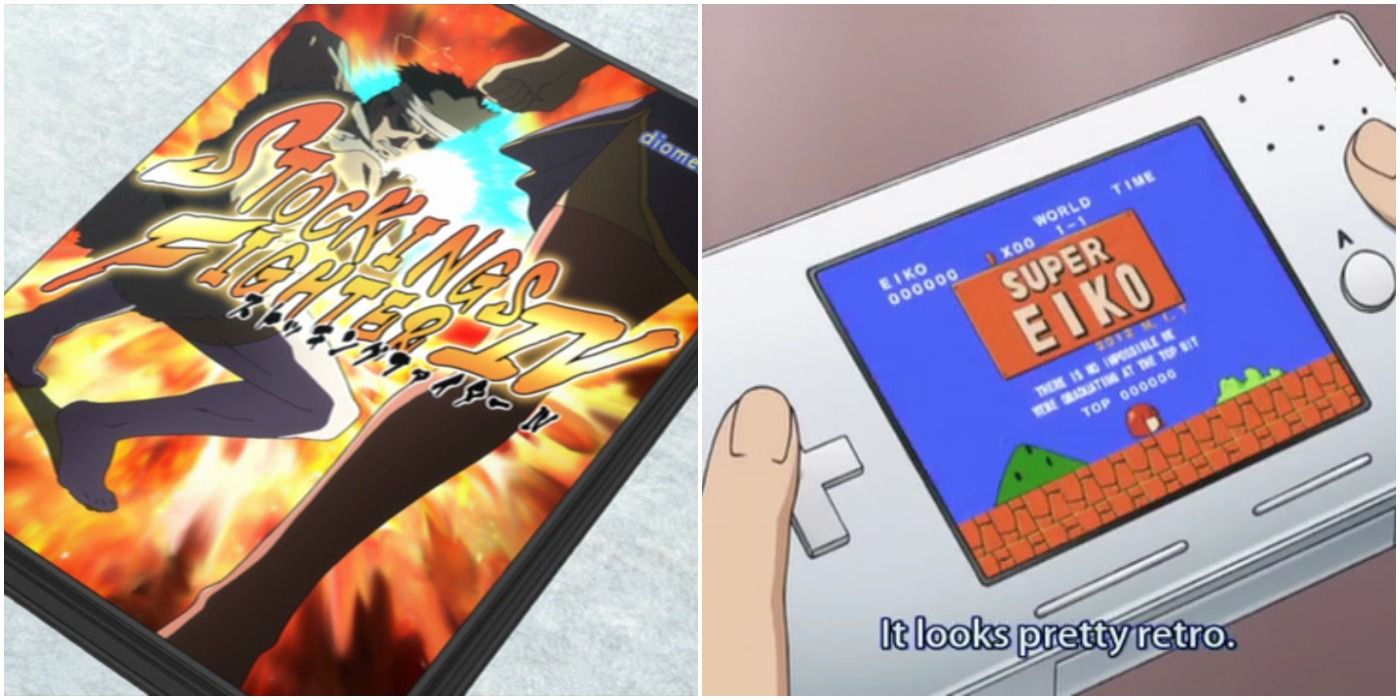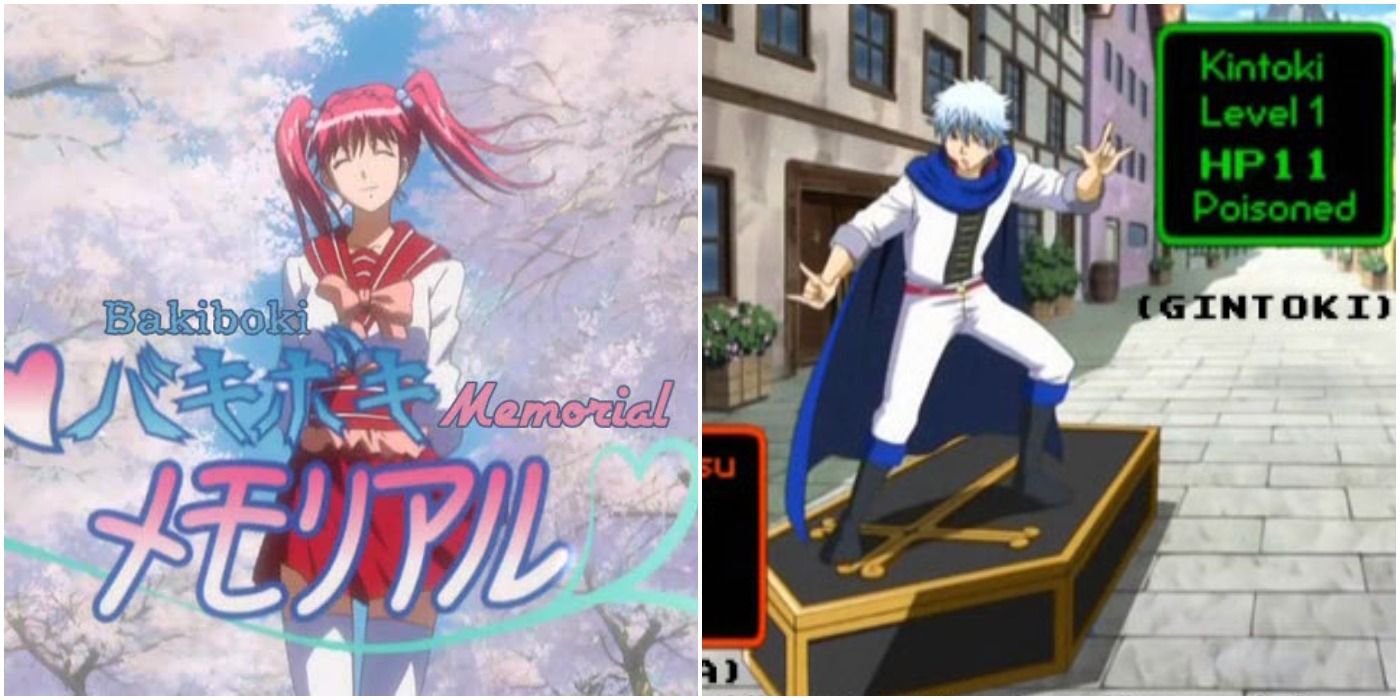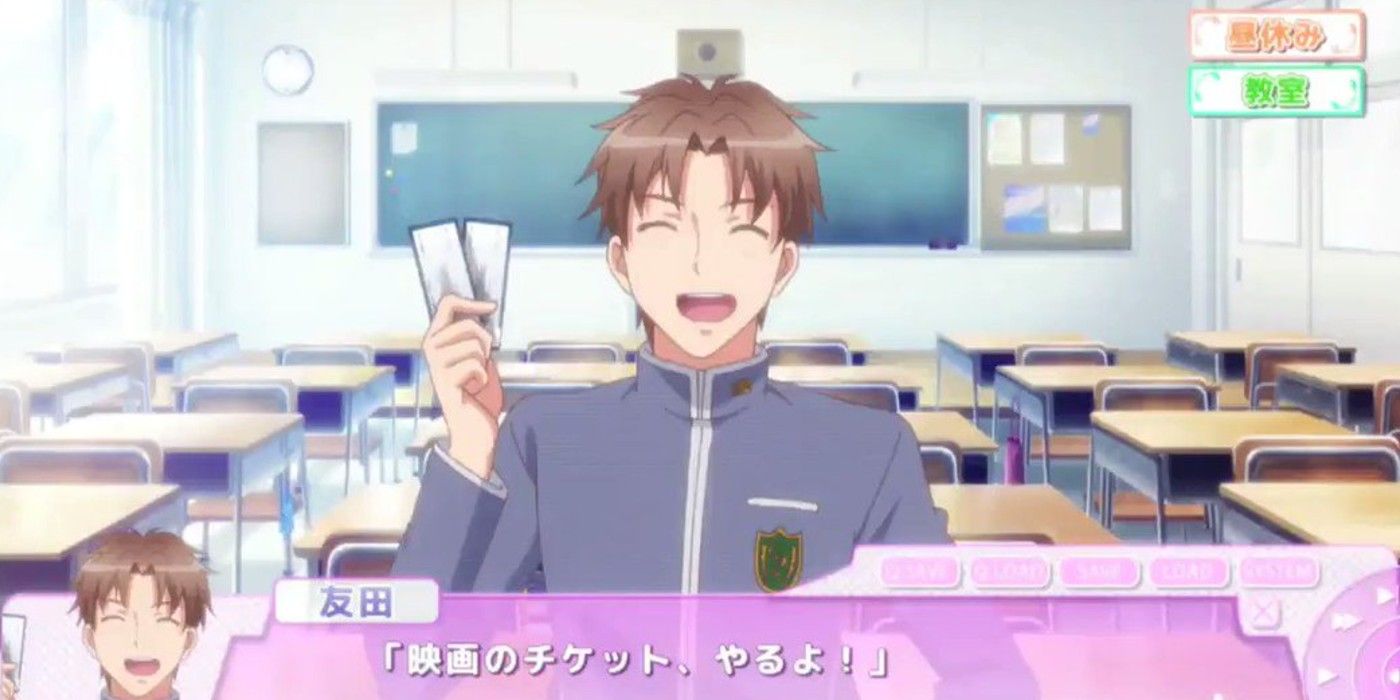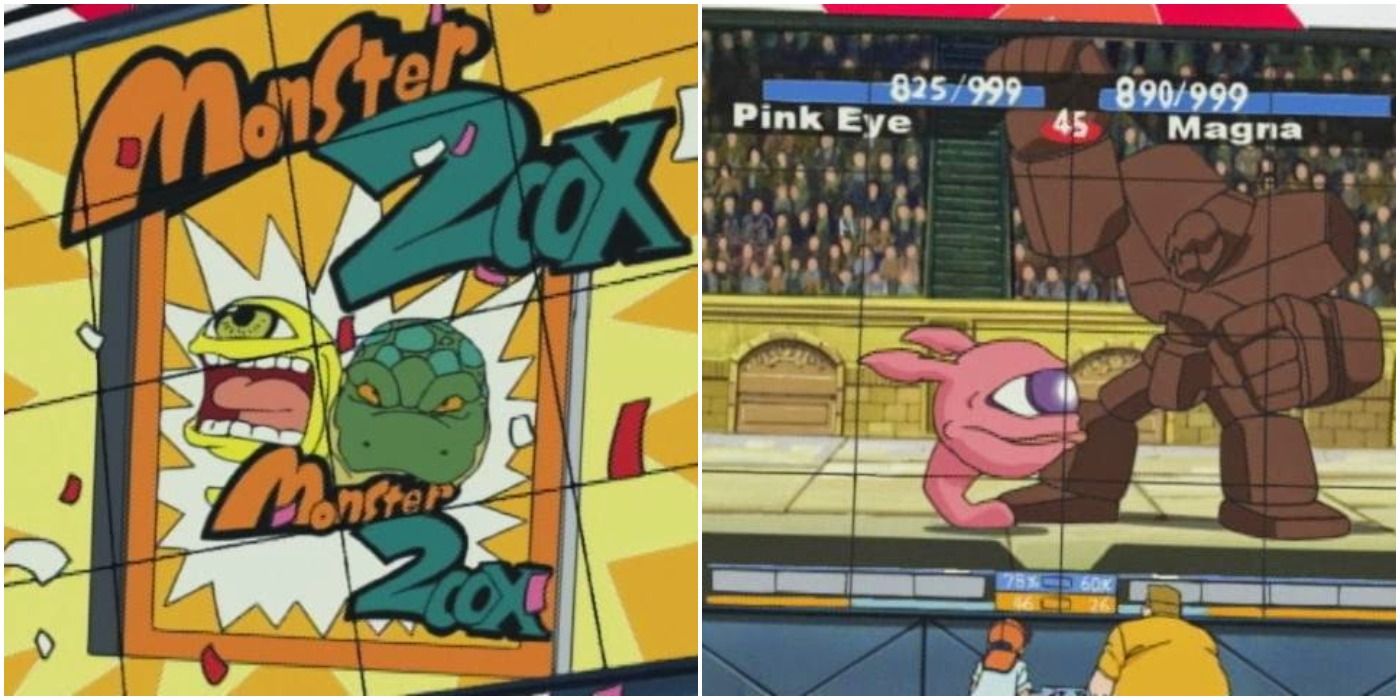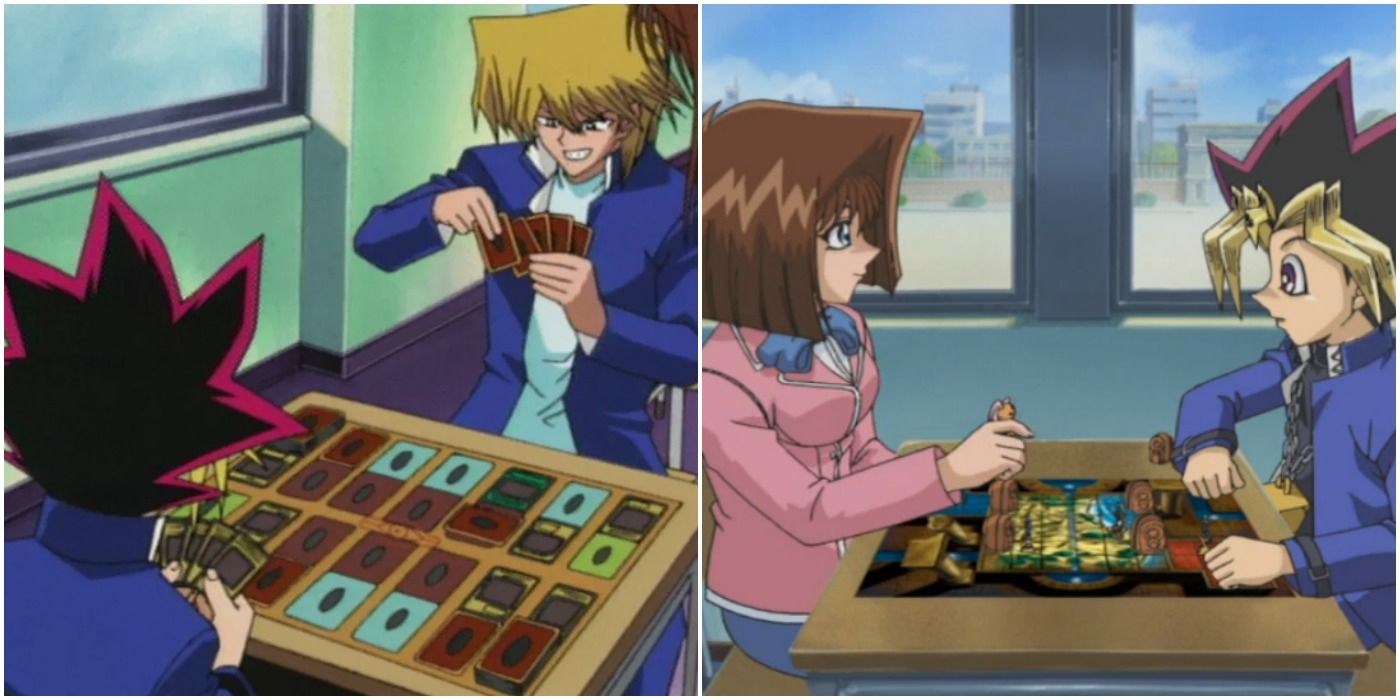Video games are such a part of everyday life that they appear in just about anything, from comics to anime. Due to how expensive licensing is, anime that want to feature a popular title resort to good-natured parodies or product displacement (i.e. deliberately misspelling a pre-existing copyrighted title or name).
The end results are some vaguely familiar titles and some hilarious spoofs. Most of the time these are just nice shout-outs to another form of popular entertainment, while in uncommon but still notable instances they’re an episode’s plot or even a whole anime’s reason for existing.
10 Hen Zemi – The Legendary Pinal Mantasy Series
Hen Zemi (or Abnormal Physiology Seminar) follows a group of college friends who embark on raunchy hijinks in the name of research and grades. At the second episode’s beginning, Nanako and Miwako accidentally bump into an awkward photo shoot, where their professor is taking erotic pictures of a game developer.
This man’s claim to fame was Pinal Mantasy, a big hit from 1998 made exclusively for the XI system. Given the show’s sense of humor and the title’s wordplay, though, it’s unsurprising to learn that Pinal Mantasy was an adults-only game and not a groundbreaking fantasy JRPG like its actual counterpart, Final Fantasy. While Pinal Mantasy gameplay is never shown, the game’s creator becomes a recurring character.
9 Sekirei: Pure Engagement – Naho Is Serious Business
Countless jokes have been made about how the card game Uno can destroy friendships as thoroughly as Monopoly does, and Sekirei: Pure Engagement (the anime’s second season) shows how this is so. The rules of Naho are the same as Uno, only now the super-powered Sekirei takes the card game to its most explosive and violent degrees.
To score a date with Minato, five Sekirei fight amongst themselves in Naho. Because of their very literal mindsets, the Sekirei take the card game too seriously or fumble it in embarrassing fashion. For example, Tsukumi questions why exactly someone has to yell the game’s name to win, while Kusano ultimately wins by deploying mind games she learned beforehand.
8 Dragon Ball Z – Mr. Satan’s Egocentric Game Poy Games
In the Dragon Ball world, Mr. Satan is a big celebrity so, naturally, he has some video games with his face and blessing on them. Though they’re unnamed, these games found on the explosive Game Poy he lends to Buu are easy to compare and contrast with their real-life counterparts.
The first game is a copy of Snake where instead of a pixelated snake, Buu controls a line of Mr. Satan heads. The other is a generic fighting game not unlike Street Fighter Alpha, only this time the default fighter is Mr. Satan himself. Mr. Satan fails to kill Buu via explosion with the rigged Game Poy, though he becomes friends with Majin Buu’s childlike form.
7 Hayate The Combat Butler – The Duel Butlers Play Yu-Gi-Oh! Using Hayate Cards
While it’s primarily known for being a nostalgic harem anime, Hayate the Combat Butler also made a name for itself by being one of the funnier gag anime from the early 2000s. The anime did this through countless parodies and references, like The Idolmaster copy Ai-Dollar-Master, but one of the more well-known skits was the Yu-Gi-Oh! spoof.
Not only did Hayate fight a Dark Butler by reenacting an episode from Yu-Gi-Oh! (complete with Duel Disks), but they use actual cards from the anime’s tie-in card game. The best part is that Hayate recreated one of the most parodied moments from Yu-Gi-Oh!, specifically when Yami uses an effect that lets him repeatedly draw Monster Cards to attack Weevil Underwood.
6 Anohana: The Flower We Saw That Day – Nokémon & Dojimon Nostalgia Are Real
Anohana: The Flowers We Saw That Day focuses on the joys and pains of nostalgia that haunts a group of childhood friends. That said, it isn’t surprising that two real-world nostalgic trends were reflected here. Specifically, Anohana paid homage to the massively popular Pokémon and Digimon through Nokémon and Dojimon, respectively.
When the Super Peace Busters realize that their dead friend Menma remains a ghost because of unfinished business, Tetsudo thinks that giving her the rare Nokémon she always wanted could help her move on. This doesn’t work out, though everyone had fun revisiting Nokémon Gold. They briefly mention Dojimon, which was Nokémon’s direct competitor that never took off.
5 The Squid Girl – Squid Girl Plays Bootlegged Classics
A good chunk of the humor in Squid Girl! stems from Musume’s addiction to the surface world’s video games. Over the course of the anime, Musume comes across a host of different consoles and video games, all of which are hilariously bootlegged versions of their real-life counterparts.
Some notable knock-offs include E-Zero (aka F-Zero), Hedgehog Kart 2 (aka Mario Kart), Super Eiko (aka Super Mario), and unnamed more. The most notable in-universe title is Stockings Fighter IV, an obvious imitation of Street Fighter IV. The silliest thing about Stocking Fighters IV is that despite being based on a PS3 game, it boasts ancient 16-bit graphics.
4 Gintama – The Odd Jobbers Get Stuck In Bootlegged Hits
During the heated battle for the Bentendo Owee, the Odd Jobbers and the Shinsengumi compete in VR recreations of certain video games to get the prized and severely limited console. These games were: Bakiboki Memorial, Dragon Hunter 3, and Nobunaga’s Vomit, based on Tokimeki Memorial, Monster Hunter, and Nobunaga’s Ambition, respectively.
The Bentendo games diverge from their originals save for Bakiboki which, like Tokimeki, is a dating sim. Nobunaga’s Vomit is a Tetris-clone where Sengoku Era leader Oda Nobunaga barfs out the bricks, while Dragon Hunter 3 is an interactive VR fantasy RPG that leads the Odd Jobbers and Shinsengumi to join forces to beat up the audience.
3 Monthly Girls’ Nozaki-Kun – Tomoda From Girls Princess 3 Deserves The World
The dating game Girls Princess 3 isn’t based on a specific otome game like Mystic Messenger, but the entire genre. Monthly Girls’ Nozaki-Kun isn’t the first anime to feature a spoofed dating sim, but it’s the most noteworthy given how popular it is in the anime community. This is all thanks to the NPC Tomoda, the player character’s best friend and wingman.
In Girls Princess 3, Tomoda supports the players’ (Nozaki and Mikoto) romantic pursuits no matter what. Nozaki and Mikoto only realize that Tomoda sacrificed so much of his time and life for them near the game’s end, motivating them to make an alternate route where the player confesses to a tearful Tomoda. Nozaki, Mikoto, and fans agree that Tomoda deserves everything and more.
2 Monster Rancher – Monster Battle 200X Solved A Very Specific Legal Problem
Monster Rancher is one of the better-received anime game adaptations, though most people forgot about the PlayStation games it was based on. The anime was made to help sell the games, though American viewers may be confused since the anime featured something called “Monster Battle 200X.” Turns out, this was a solution to a legal hurdle.
In America, cartoons aren’t allowed to directly sell anything to audiences, while this isn’t a problem in Japan. As a result, the original Monster Rancher broadcast explicitly showed Genki entering the world of the actual “Monster Rancher,” while the American localization gave him “Monster Battle 200X.” Additionally, “Monster Battle 200X” was made by Mecto, not Tecmo.
1 Yu-Gi-Oh! – Yami Plays Familiar Games
These days, Yu-Gi-Oh! anime are known for being glorified ads for the various games that emerged from the franchise, especially children’s card games. In both anime and manga, Yami Yugi plays different games that range from cool to otherworldly. What many may not know is that these over-the-top games were actually based on real-life ones.
The card games were originally a one-off manga Magic: The Gathering homage named Magic & Wizards. After M&W received immense fan approval, mangaka Kazuki Takahashi reworked his story to focus on what would become Duel Monsters. Other in-universe tributes include Capsule Monsters (aka Pokémon) and Dungeon Dice Monsters (aka Dungeons & Dragons).

